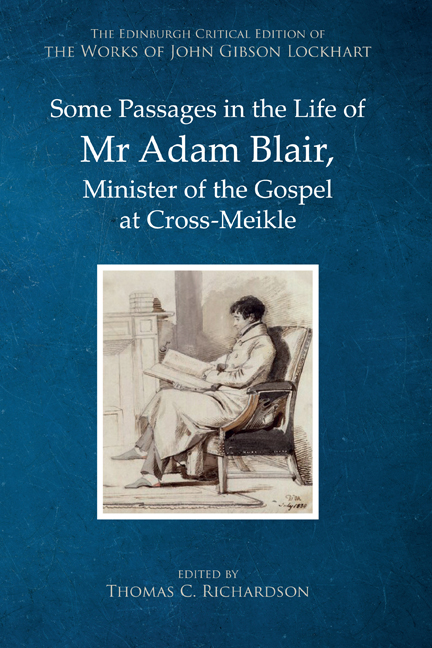Chapter XXI
Published online by Cambridge University Press: 10 October 2020
Summary
WHEN the clergymen composing the Presbytery found themselves assembled that day, it would have been evident to any one who might have been present, that their minds were occupied with something very different from the ordinary routine of their ecclesiastical business. The clerk read his minutes without being listened to by anybody, and while many little matters were arranged in the usual manner among the usual functionaries, the different members of the court were seen forming themselves into knots, and whispering together low and anxiously in various corners of the Chapter-house. At length one of the members, a tall, thin, elderly person of very formal aspect, moved that the court should be cleared, as he had to call the attention of his brethren to a subject, which, in its present state, ought to be discussed with closed doors.
When this clergyman, by name Stevenston, was satisfied that all strangers had retired, he addressed the chair in a long and elaborate speech, for the tenor of which almost all who heard him were sufficiently prepared before he opened his lips. He expatiated at great length on his own unwillingness at all times to open his ears to scandal, more particularly against the character of any of his hitherto respected brethren;—explained, however, that, under certain circumstances, it was every man's duty to overcome his private feelings;— and then entered into a serious, circumstantial detail of the many rumours which had been for some time afloat, concerning the conduct of Mr Blair of Cross-Meikle. He concluded with moving a string of resolutions, which he held written out on a card in his hand—the general purport of which was, that the scandal concerning this member of their court had already amounted to what, in the ecclesiastical phraseology of Scotland, goes under the name of a Fama Clamosa; and that, therefore, it was the bounden duty of the Presbytery to take up the matter quam primum, and appoint a committee, with powers to commence a precognition—and that such and such persons ought to constitute the committee in question.
- Type
- Chapter
- Information
- Publisher: Edinburgh University PressPrint publication year: 2020

